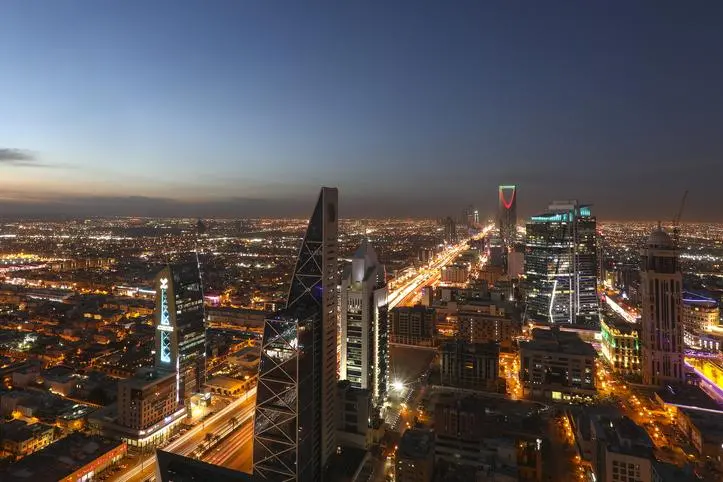PHOTO
RIYADH: Saudi Transport Minister Nabil bin Mohammed Al-Amoudi believes that foreign investors will want to be involved in the huge National Industrial Development and Logistics Program (NIDLP) announced in Riyadh because it makes sound business sense.
“I think the driver of foreign capital is going to be good business opportunities, and the key to that is a healthy, vibrant and sustainable economy, which we have. The reforms were about ensuring that was sustainable over the long term,” he said.
“But the real driver is ultimately going to be the business cases, or businesses that make sense for the foreign investor — actual investment opportunities, not just sentiment-driven investments.”
Al-Amoudi was addressing one of the central issues raised by the deals announced at the Ritz-Carlton hotel in the presence of Crown Prince Mohammed bin Salman: Whether global investors would be willing and able to stump up their share of the billions of dollars needed to achieve the ambitious plan.
The Kingdom unveiled a 10-year strategy that would transform its industrial and economic base, in line with the Vision 2030 plan to diversify away from oil dependency. The strategy aims to stimulate investments worth more than $453 billion across the four key pillars of the Saudi economy. Will the funds — from a mixture of the Saudi government, private investors in the Kingdom and global investors — come rolling in?
From his command post in transport, Al-Amoudi is in a good position to judge. Transport is crucial to each of the four economic pillars identified at Monday’s NIDLP launch. His ministry is directly responsible for the logistics pillar, but through its role as a facilitator of the movement of people and goods, it also plays a key role in the three others, he said.
Al-Amoudi’s ministry is virtually a laboratory to gauge the appetite of public and private investors for the program, though he is not yet able to break down the precise split between government and private funding involvement.
For example, in road building, the private finance world will probably be happy to get involved in the new toll roads announced as part of the program, but would balk at the prospect of taking on a whole new road-construction program.
“It cuts across various sectors that are very different in terms of private-sector appetite to take on major infrastructure projects,” he said.
Railway is even more difficult to get private sector involvement, so private capital will be limited to two relatively short lines on the east and west coasts, while public money will be deployed in constructing the “Landbridge” — the long-awaited rail link between Jeddah and Riyadh.
“That’s 1,000 km of rail. It’s a major and serious undertaking,” Al-Amoudi said, putting the cost at around SR50 billion ($13.3 billion).
Al-Amoudi confirmed that the Kingdom was in talks with Hyperloop, the ultrafast transport system, but that was something for the future. “We’re keen to see how that technology develops, but whether it competes with or even replaces rail is something only time can tell,” he said.
Five airports are to be built or upgraded under the program, and others will be developed outside the new strategy, he added. Some air cargo and logistics systems will also be upgraded.
Rounding off the transport sector with the NIDLP, he said that the private sector has a track record of successful investment in the Kingdom’s maritime facilities, and this will continue.
At least three new deals were signed in Riyadh to renew concessions with private sector partners, at a cost of about SR15 billion, with an immediate outlay of SR7-8 billion in the first two years. Some observers at the event said the NIDLP amounted to a “kick-start” for Vision 2030.
While there has been progress on social, cultural and leisure issues, there has not been much headway made on the big economic issues, such as the plan to privatize large chunks of the predominantly state-owned economy.
Al-Amoudi disagrees. “To say Vision 2030 has been slow to kick off is to deny what we all see on an everyday basis driving through the streets of Saudi Arabia, or having dinner at a restaurant, or going to a concert at King Abdullah Economic City, or a golf tournament, as I plan to do in a couple of days,” he said.
“We’ve been through a significant restructuring of the economy, the traditional ways that businesses have been built in the Kingdom have been challenged, with energy price reform and labor reform, and that has had a negative effect on the economy. But I’d say it’s a necessary reform,” he added.
“If you look at what we’re launching here today, one of the key initiatives is industry, which has been blessed with advantageous feedstock pricing.”
Ports and logistics hubs in the Kingdom will be digitized and made more efficient, with, for example, truck turnaround times reduced dramatically.
“Use your existing infrastructure as efficiently as you can through technology and a better implementation process,” Al-Amoudi said.
One of the major features of the NIDLP is the high level of government incentives, grants and trade-offs to enhance the value proposition to investors.
What the program calls “financial enablement packages” offer SR105 billion to potential investors in the four key sectors through the Saudi Industrial Development Fund; an “industry enablement package” offers SR5.3 billion in incentives for companies looking to invest in high technology sectors; SR30 billion is earmarked for export financing; and more than SR50 billion of support has been set aside for the creation of a national chain of industrial cities and special economic zones.
“Those are big numbers by any stretch of the imagination, but they’re key enablers to ensuring you develop a healthy and vibrant sector, be it energy, industry, mining or logistics,” he added.
“It’s a package for investors and small and medium enterprises that are serious about investing in those various sectors. So it’s a critical enabler to kick-start some of those industries that are being discussed here.”
Copyright: Arab News © 2019 All rights reserved. Provided by SyndiGate Media Inc. (Syndigate.info).





















